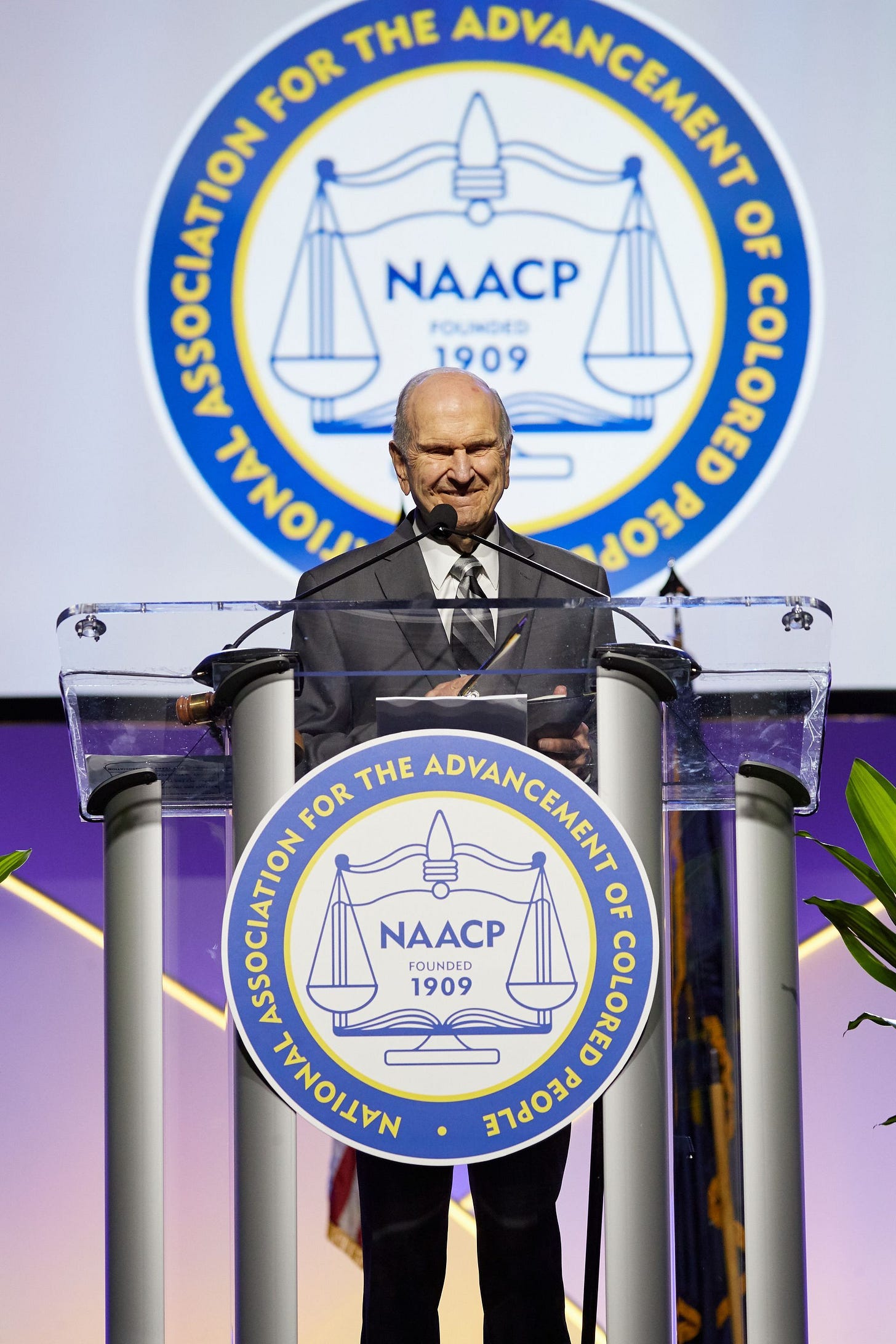Recently, the 98-year-old leader of The Church of Jesus Christ of Latter-day Saints, a former cardiac surgeon named Russell Nelson, delivered what many immediately recognized as a seminal talk entitled “Peacemakers Needed.”

He introduced the topic with this story:
During my surgical internship many years ago, I assisted a surgeon who was amputating a leg filled with highly infectious gangrene. The operation was difficult. Then, to add to the tension, one of the team performed a task poorly, and the surgeon erupted in anger. In the middle of his tantrum, he threw his scalpel loaded with germs. It landed in my forearm!
Everyone in the operating room—except the out-of-control surgeon—was horrified by this dangerous breach of surgical practice. Gratefully, I did not become infected. But this experience left a lasting impression on me. In that very hour, I promised myself that whatever happened in my operating room, I would never lose control of my emotions. I also vowed that day never to throw anything in anger—whether it be scalpels or words.
He put peacemaking in this context:
Too many pundits, politicians, entertainers, and other influencers throw insults constantly. I am greatly concerned that so many people seem to believe that it is completely acceptable to condemn, malign, and vilify anyone who does not agree with them.
Let’s be clear about a key element of this message. Nelson was speaking to members of the faith, challenging them to be peacemakers because he sees too much evidence that they are not doing well enough in this regard. This was not the LDS leader’s call to the world to be more like the members of the faith.
That said, I suspect we can agree that Latter-day Saints are not the only ones who could contend less and be kind more in this world.
Nearing the end of his message, he said:
At this point, you may be thinking that this message would really help someone you know. Perhaps you are hoping that it will help him or her to be nicer to you. I hope it will! But I also hope that you will look deeply into your heart to see if there are shards of pride or jealousy that prevent you from becoming a peacemaker.
Recognizing that this message was for me as much as anyone else, today, I am going to share some thoughts about how I will seek to become a better peacemaker.
One part of his message struck me as particularly relevant because of a bad temper I’ve worked to manage for over 30 years. Nelson said:
…now is the time to lay aside bitterness. Now is the time to cease insisting that it is your way or no way. Now is the time to stop doing things that make others walk on eggshells for fear of upsetting you. Now is the time to bury your weapons of war. If your verbal arsenal is filled with insults and accusations, now is the time to put them away.
Here’s a list of things I will strive to do to be more of a Peacemaker.
I will no longer retweet or reshare hateful, mocking memes that demean people, even those in high places, with whom I disagree. This will be difficult for me. I think of the current governor of my state (Florida) and the most recent former President as two examples of people who won’t garner my support–and who are at times worthy of thoughtful criticism, including mine–but I will avoid name-calling, labeling and other personal attacks.
I will strive to control my temper and tongue when I am frustrated. I like challenges. I think we all learn and grow from doing things that are hard. I have dramatically improved my ability to do home and automotive tasks in recent years by pushing myself. At the same time, these difficult projects sometimes yield frustration and even failure. I will work to accept setbacks more graciously.
I will work to be more kind. Over the past several decades, my views on kindness have evolved. My old views placed far greater weight on the sort of kindness that involves real sacrifice–donating time and money to a cause or helping a friend move–but have come to believe that day-to-day kindness, as in treating others kindly, is similarly important. Having adopted that value, I continue to struggle to fully implement it, especially with hard-working, doing-their-best humans working for companies with which I may have a bone to pick.
Here’s a list of things I plan to continue doing that I believe contribute to peace.
I will use the names and pronouns of people’s choice. This simple sign of respect is fundamental. In my experience, it is virtually universal. I cannot think of a single instance in the past five years that someone has refused to do so with respect to someone present.
I will engage with Rotary. Rotary is 1.4 million people working to achieve global peace as a priority. I’m proud to be associated with the organization and have observed its success firsthand in far-flung places like India, Pakistan and Ethiopia.
I will make small investments in companies with diverse founders, social and environmental missions or community impact. I’ve seen how these investments work and believe that this contributes to peace in multiple ways.
I will host my show, profiling changemakers whose work exemplifies one of the many ways we can all become peacemakers. I’ve gained tremendous insights about empathy, kindness and peacebuilding from my guests.
By continuing my current brand of peacemaking and adding to it, I hope to expand peace in my family, my community, my country and the world. I have no delusions about my reach or influence. I’m just one imperfect human being. I am convinced that everyone matters. Even me.




